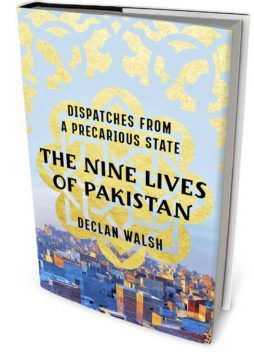Tunku Varadarajan in the Wall Street Journal:
 Pakistan was created in 1947 as a homeland for the Muslims of Hindu-majority India—“carved from the flanks of British India,” as Mr. Walsh puts it. Its “Great Leader” (“Quaid-e-Azam” in Urdu) was Muhammad Ali Jinnah, an unlikely agitator for a confessional Muslim state. A worldly lawyer who drank alcohol and married outside his faith, he was, Mr. Walsh tells us, “purposefully vague about his beliefs” for much of his life. In a poignant passage, Mr. Walsh parses a photograph of Jinnah taken in September 1947, a month after Pakistan was born: In it, he wears “the gaze of a man who gambled at the table of history, won big—and now wonders whether he won more than he bargained for.”
Pakistan was created in 1947 as a homeland for the Muslims of Hindu-majority India—“carved from the flanks of British India,” as Mr. Walsh puts it. Its “Great Leader” (“Quaid-e-Azam” in Urdu) was Muhammad Ali Jinnah, an unlikely agitator for a confessional Muslim state. A worldly lawyer who drank alcohol and married outside his faith, he was, Mr. Walsh tells us, “purposefully vague about his beliefs” for much of his life. In a poignant passage, Mr. Walsh parses a photograph of Jinnah taken in September 1947, a month after Pakistan was born: In it, he wears “the gaze of a man who gambled at the table of history, won big—and now wonders whether he won more than he bargained for.”
The subtitle of Mr. Walsh’s book is “Dispatches From a Precarious State,” and he opens his account on his last night in Pakistan, in May 2013. He had been given 72 hours to leave, his visa canceled by the notorious Inter-Services Intelligence (ISI) for his pursuit (it was alleged) of “undesirable activities.” It was a cruel moment for a reporter to have to depart: There was an election the next day—the first time in which a civilian Pakistani government would complete its term and hand over power to another.
This election, Mr. Walsh writes, was “stupendously good news” in Pakistan, a country of “hidden delights [and] endearing absurdities” that had endured the rule of military dictators for a hefty portion of its existence. That democracy appeared to be holding fast against daunting odds was “a blast of sweet relief to weary Pakistanis.”
More here.
